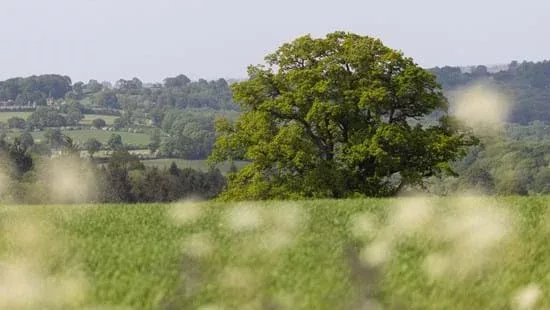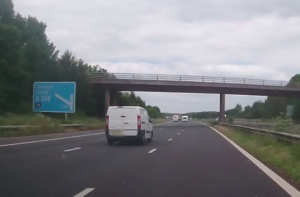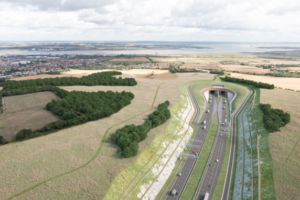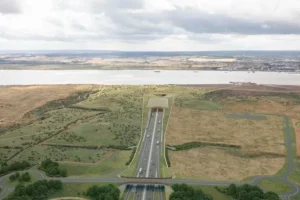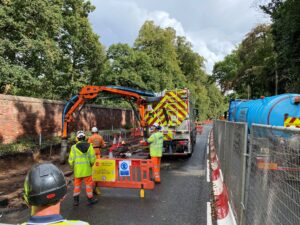National Highways is planting 3,000 trees to fight back against a major outbreak of ash dieback in the South West.
The ash dieback fungus is now found across most of the UK. It affects shoots, branches and trunk base, causing canopy decline and the death of most affected trees.
National Highways began a programme of ash dieback removal in 2022, and while it will require continued monitoring, most clearance work along the A30 in Devon and Cornwall has now been completed.
Now a new programme will see the replanting of 3,000 new trees including local species such as hazel, crab apple, holly, hawthorn, honeysuckle, european spindle, hornbeam and several others in lesser numbers.
The company says these species have been carefully chosen to ensure local habitats are encouraged to flourish and will be planted in a variety of sizes on verges, with some rolling lane closures in place to safely carry out the work.
The aim is to complete the replanting works ahead of spring and the bird nesting season.
While the A30 in Devon and Cornwall is the first route to see removal and replanting, National Highways says it has an on-going programme for tree removal and replanting to manage ash dieback.
Environmental Manager Kate Rawlins said: “Ash dieback had started to affect trees on our land and we had been monitoring its spread where symptoms have become more severe and were making every effort to minimise its impact.
“We want to do everything we can to preserve the biodiversity of our soft estate, but at the same time, we need to make sure everybody using our land, on or off road, is safe.
“With clearance of dead or dying trees complete, we are now delighted to be able to replace trees and reduce the impact of the disease on the environment. In areas identified for replanting, we will be adding a broader range of native tree species for increased resilience.”
National Highways is responsible for 30,000 hectares of land which includes significant areas of woodland alongside our road network. This ‘soft estate’ supports a rich diversity of animal and plant life, including ash, one of our most useful and versatile native trees.
The company recognises the environmental value of trees and manages trees through their whole lifecycle with tree specialists carrying out regular inspections for safety and general woodland management.
National Highways also has a legal obligation to maintain a safe network, so must ensure trees don’t present a hazard to road users or adjacent property.
Ivan Le Fevre, Head of Environment Strategy for National Highways, added: “We take our environmental responsibilities very seriously and are one of the largest tree planting organisations in the UK, with plans to plant an extra three million trees by 2030.
“We only cut back or fell trees where it is essential to keep people safe, protect the environment or where it is necessary to allow us to deliver schemes that improve journeys.
“Along areas of our network in the South West, in common with other parts of the UK, the severity of ash dieback has been increasing. Trees pose a safety risk, which means the management of trees is necessary to protect the landscape and all those who use our network.”
(Picture – National Highways)



